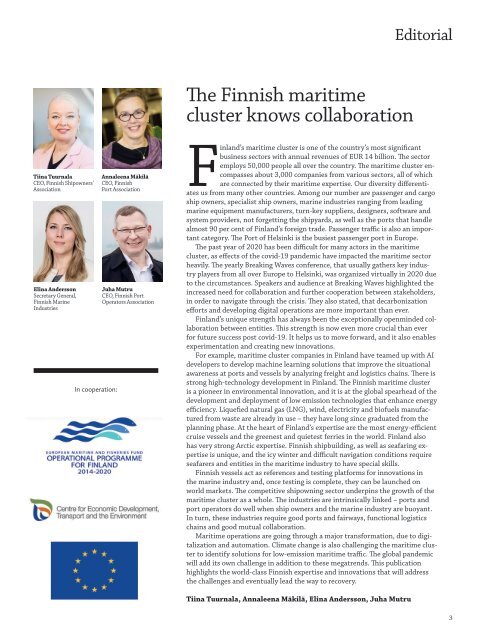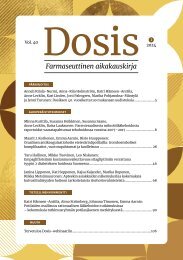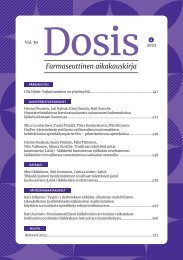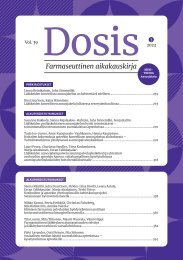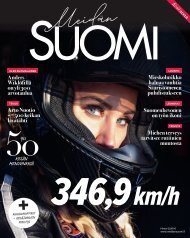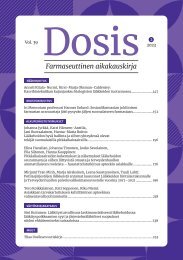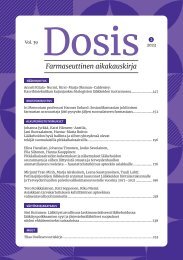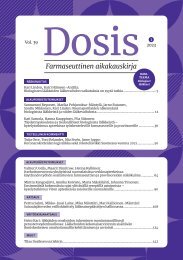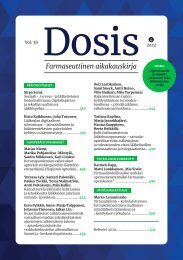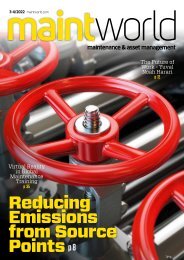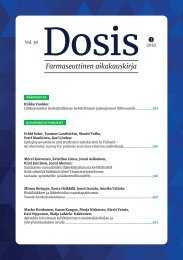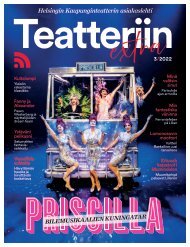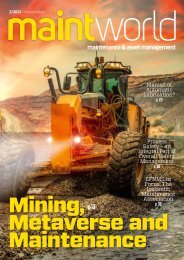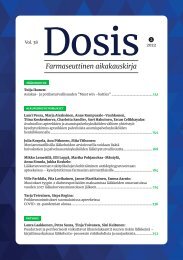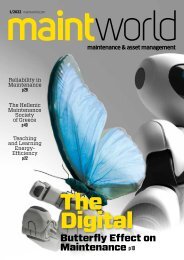Create successful ePaper yourself
Turn your PDF publications into a flip-book with our unique Google optimized e-Paper software.
Editorial<br />
The <strong>Finnish</strong> maritime<br />
cluster knows collaboration<br />
Tiina Tuurnala<br />
CEO, <strong>Finnish</strong> Shipowners'<br />
Association<br />
Elina Andersson<br />
Secretary General,<br />
<strong>Finnish</strong> Marine<br />
Industries<br />
In cooperation:<br />
Annaleena Mäkilä<br />
CEO, <strong>Finnish</strong><br />
Port Association<br />
Juha Mutru<br />
CEO, <strong>Finnish</strong> Port<br />
Operators Association<br />
Finland’s maritime cluster is one of the country’s most significant<br />
business sectors with annual revenues of EUR 14 billion. The sector<br />
employs 50,000 people all over the country. The maritime cluster encompasses<br />
about 3,000 companies from various sectors, all of which<br />
are connected by their maritime expertise. Our diversity differentiates<br />
us from many other countries. Among our number are passenger and cargo<br />
ship owners, specialist ship owners, marine industries ranging from leading<br />
marine equipment manufacturers, turn-key suppliers, designers, software and<br />
system providers, not forgetting the shipyards, as well as the ports that handle<br />
almost 90 per cent of Finland’s foreign trade. Passenger traffic is also an important<br />
category. The Port of Helsinki is the busiest passenger port in Europe.<br />
The past year of <strong>2020</strong> has been difficult for many actors in the maritime<br />
cluster, as effects of the covid-19 pandemic have impacted the maritime sector<br />
heavily. The yearly Breaking Waves conference, that usually gathers key industry<br />
players from all over Europe to Helsinki, was organized virtually in <strong>2020</strong> due<br />
to the circumstances. Speakers and audience at Breaking Waves highlighted the<br />
increased need for collaboration and further cooperation between stakeholders,<br />
in order to navigate through the crisis. They also stated, that decarbonization<br />
efforts and developing digital operations are more important than ever.<br />
Finland’s unique strength has always been the exceptionally openminded collaboration<br />
between entities. This strength is now even more crucial than ever<br />
for future success post covid-19. It helps us to move forward, and it also enables<br />
experimentation and creating new innovations.<br />
For example, maritime cluster companies in Finland have teamed up with AI<br />
developers to develop machine learning solutions that improve the situational<br />
awareness at ports and vessels by analyzing freight and logistics chains. There is<br />
strong high-technology development in Finland. The <strong>Finnish</strong> maritime cluster<br />
is a pioneer in environmental innovation, and it is at the global spearhead of the<br />
development and deployment of low emission technologies that enhance energy<br />
efficiency. Liquefied natural gas (LNG), wind, electricity and biofuels manufactured<br />
from waste are already in use – they have long since graduated from the<br />
planning phase. At the heart of Finland’s expertise are the most energy-efficient<br />
cruise vessels and the greenest and quietest ferries in the world. Finland also<br />
has very strong Arctic expertise. <strong>Finnish</strong> shipbuilding, as well as seafaring expertise<br />
is unique, and the icy winter and difficult navigation conditions require<br />
seafarers and entities in the maritime industry to have special skills.<br />
<strong>Finnish</strong> vessels act as references and testing platforms for innovations in<br />
the marine industry and, once testing is complete, they can be launched on<br />
world markets. The competitive shipowning sector underpins the growth of the<br />
maritime cluster as a whole. The industries are intrinsically linked – ports and<br />
port operators do well when ship owners and the marine industry are buoyant.<br />
In turn, these industries require good ports and fairways, functional logistics<br />
chains and good mutual collaboration.<br />
<strong>Maritime</strong> operations are going through a major transformation, due to digitalization<br />
and automation. Climate change is also challenging the maritime cluster<br />
to identify solutions for low-emission maritime traffic. The global pandemic<br />
will add its own challenge in addition to these megatrends. This publication<br />
highlights the world-class <strong>Finnish</strong> expertise and innovations that will address<br />
the challenges and eventually lead the way to recovery.<br />
Tiina Tuurnala, Annaleena Mäkilä, Elina Andersson, Juha Mutru<br />
3


